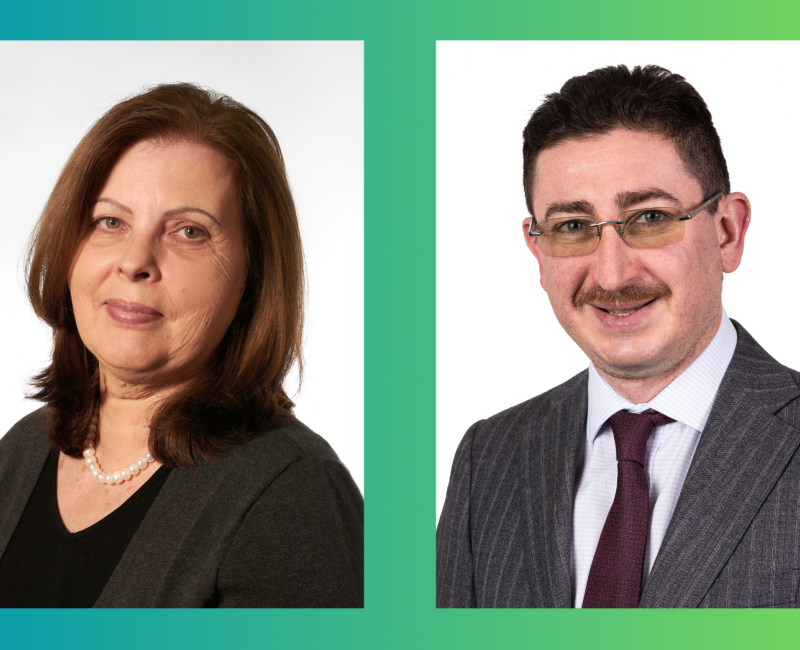The information on this site is subject to a disclaimer and a copyright notice.
Disclaimer
The Agency for the Cooperation of Energy Regulators maintains this website to enhance public access to information about its activities and initiatives. Our goal is to keep this information timely and accurate. If errors are brought to our attention, we will try to correct them.
The Agency for the Cooperation of Energy Regulators accepts no responsibility or liability whatsoever with regard to the information on this site. This disclaimer, however, is not intended to limit the liability of the Agency in contravention of any requirements laid down in applicable national law nor to exclude its liability for matters which may not be excluded under that law.
This information is:
• of a general nature only and is not intended to address the specific circumstances of any particular individual or entity;
• not necessarily comprehensive, complete, accurate or up to date;
• sometimes linked to external sites over which the Agency services have no control and for which the Agency assumes no responsibility;
• no professional or legal advice (if you need specific advice, you should always consult a suitably qualified professional).
Please note that it cannot be guaranteed that a document available on-line exactly reproduces an officially adopted text.
It is our goal to minimise disruption caused by technical errors. However some data or information on our site may have been created or structured in files or formats that are not error-free and we cannot guarantee that our service will not be interrupted or otherwise affected by such problems. The Agency accepts no responsibility with regard to such problems incurred as a result of using this site or any linked external sites.
Copyright notice
Unless otherwise stated, the Agency is the owner of copyright and database rights of this website and its contents. Downloading of this Licensed Material other than for personal use is prohibited. The republication, retransmission, reproduction or other use of this Licensed Material is prohibited.
Information and documents made available on the Agency's webpages are public and may be reproduced and/or distributed, totally or in part, irrespective of the means and/or the formats used, for non-commercial and commercial purposes, provided that the Agency is always acknowledged as the source of the material. Such acknowledgement must be included in each copy of the material.
Citations may be made from such material without prior permission, provided the source is always acknowledged. To cite material from the Agency's website, please list it with the URL, and the month and year you accessed it.
Translations of texts or documents published on this website are authorised subject to the following conditions:
1. Due acknowledgement is given at a suitably prominent place, followed by an appropriate disclaimer, both translated into the relevant language:
“Disclaimer:
This is an unofficial translation from the original [specify language] version of [specify document in source language] published by ACER – the European Agency for the Cooperation of Energy Regulators on [date] and available on its website: https://www.acer.europa.eu/
This unofficial translation was neither reviewed nor approved by ACER. The [specify original language] version of the [specify document], as indicated in the link above, represents the only official document and in case of discrepancies or differences between the [specify original language] version and this translation, the [specify original language] version shall prevail. ACER shall not be held liable for any loss or damage incurred thereby and shall not be held otherwise liable for any errors, omissions or inaccuracies in this translation.”
2. Each page of the translation should contain an additional disclaimer highlighting that the document contains an unofficial translation.
3. A copy of the translation is provided to the Agency at least 5 working days prior to publication on the website for a final approval of the format of the document.
Where prior permission must be obtained for the reproduction or use of textual and multimedia information (sound, images, software, etc.), such permission shall cancel the above-mentioned general permission and shall clearly indicate any restrictions on use.
What is an e-service?
An e-service on the Agency website is a service or resource made available on the Internet in order to improve the communication between citizens and businesses on the one hand and the Agency on the other hand.
Three types of e-services are or will be offered by the Agency website:
1. Information services that provide citizens, media, business, administrations and other decision makers with easy and effective access to information, thus increasing transparency and understanding of the policies and activities of the Agency;
2. Interactive communication services that allow better contacts with citizens, business, civil society and public actors thus facilitating policy consultations, and feedback mechanisms, in order to contribute to the shaping of policies, the activities and the services of the Agency;
3. Transaction services that allow access to all basic forms of transactions with the Agency, e.g. procurement, financial operations, recruitment, event enrolment, acquisition or purchase of documents etc.
How do we treat e-mails you send us?
Many web pages on the Agency website have a "Contact" button, which activates your e-mail software and invites you to send your comments to a specific functional mailbox.
When you send such a message, your personal data is collected only to the extent necessary to reply. If the management team of the mailbox is unable to answer your question, it will forward your e-mail to another service. You will be informed, via e-mail, about which service your question has been forwarded to.
If you have any questions about the processing of your e-mail and related personal data, do not hesitate to include them in your message.





